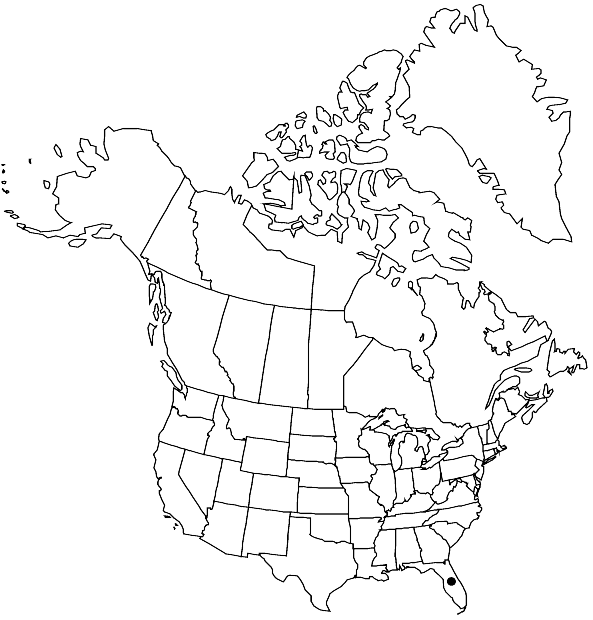Difference between revisions of "Calymperes pallidum"
Philos. Trans. Royal Soc. London 168(extra vol.): 388. 1879,.
FNA>Volume Importer |
imported>Volume Importer |
||
| (3 intermediate revisions by 2 users not shown) | |||
| Line 30: | Line 30: | ||
-->{{#Taxon: | -->{{#Taxon: | ||
name=Calymperes pallidum | name=Calymperes pallidum | ||
| − | |||
|authority=Mitten | |authority=Mitten | ||
|rank=species | |rank=species | ||
| Line 44: | Line 43: | ||
|publication year= | |publication year= | ||
|special status= | |special status= | ||
| − | |source xml=https:// | + | |source xml=https://bitbucket.org/aafc-mbb/fna-data-curation/src/2e0870ddd59836b60bcf96646a41e87ea5a5943a/coarse_grained_fna_xml/V27/V27_979.xml |
|genus=Calymperes | |genus=Calymperes | ||
|species=Calymperes pallidum | |species=Calymperes pallidum | ||
Latest revision as of 21:29, 5 November 2020
Plants gregarious and tufted, pale green, erect when dry, to 7 mm. Leaves slightly dimorphic; vegetative 2–2.5 mm; distal lamina oblong-lanceolate; margins 1-stratose to slightly thickened distally, irregularly serrate; costa in cross section absent well-defined stereid cells; medial cells distinct, 8–10 µm, bulging and 1- to pluripapillose adaxially, bulging to 1-papillose abaxially; teniolae distinct at leaf shoulders and above; cancellinae rounded or ending in acute angles distally, adaxial distal cells mammillose at least in part; gemmiferous leaves with narrowed apices, bearing gemmae mostly adaxially but also abaxially on apices.
Habitat: Not producing sporophytes in flora area. Tree bark
Elevation: low elevations (0 m)
Distribution

Fla., West Indies, South America, Africa, Asia.
Discussion
Calymperes pallidum is known in the flora area only from one collection from Collier County, southern Florida. The species is very widespread but almost always rare in tropical regions around the world. Its most distinctive feature is the absence of well-defined stereid cells in the costa in contrast to our other species of Calymperes, which uniformly show two distinct bands of stereids in the costa. Calymperes erosum is similar to C. pallidum in having teniolae and with distal cells of the cancellinae mammillose, but its costa has strong bands of stereids. In C. pallidum the apices of the vegetative leaves are often rounded and sometimes almost cucullate.
Selected References
None.